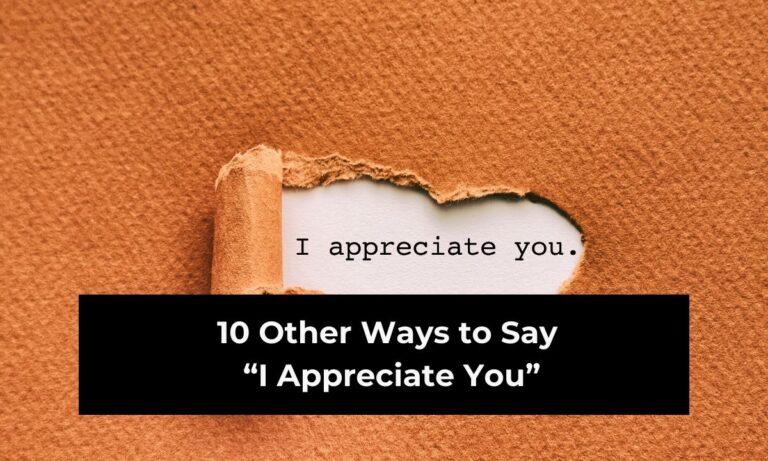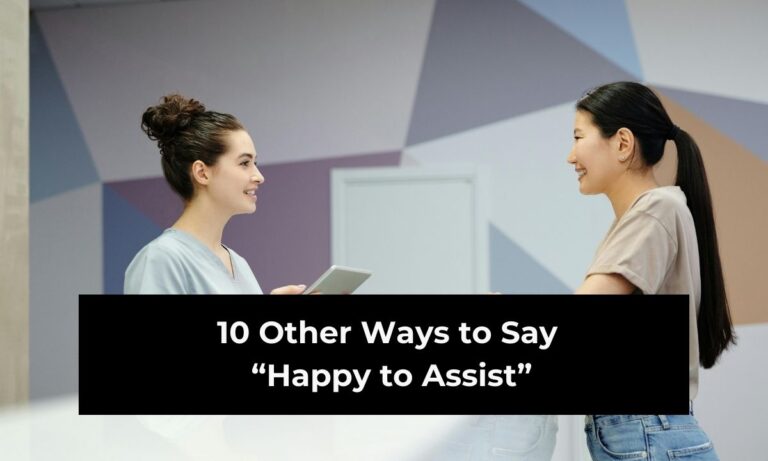You’ve probably said the phrase “good girl” more times than you can count—whether you’re praising a pet, encouraging a child, or even playfully complimenting someone you care about. It’s a short, familiar phrase, but sometimes, you want something more original. Maybe you want your words to feel warmer, more creative, or just different enough to stand out.
Think about it—language shapes how your message feels. If you repeat the same praise over and over, it can lose its spark. The right words can make your encouragement more memorable and meaningful. Choosing fresh ways to express praise keeps your compliments exciting and can even deepen your connection with the person (or furry friend) you’re speaking to.
The best part? You don’t have to be a poet to come up with great alternatives. There are plenty of ways to say “good girl” that feel just as heartfelt, and sometimes even more powerful. Some are sweet and playful, while others feel more sincere and affirming. You can choose based on the mood, the person’s personality, or even the moment you’re sharing.
In this guide, you’ll discover ten different ways to say “good girl” that you can start using right away. Each option comes with tips on when to use it, how it sounds, and why it works. We’ll keep it conversational and practical so you can easily picture yourself saying these phrases in real life.

By the time you finish reading, you’ll have a pocket full of compliments ready to go—whether you’re giving encouragement, showing appreciation, or simply making someone smile. Let’s get into it.
1. “Well Done”
When you want to keep it classic but still switch things up, “well done” is a great choice. It’s straightforward, positive, and works in nearly any situation where you’d say “good girl.”
“Good girl” often feels casual and affectionate, but “well done” adds a touch of formality without sounding stiff. It works when you’re giving genuine recognition for effort or achievement. Picture your daughter finishing her piano piece after weeks of practice—“Well done!” feels both respectful and encouraging.
This phrase also works well if you’re talking to someone outside a close personal relationship. In a workplace setting or a classroom, “well done” comes across as professional yet warm. It acknowledges skill and effort, which can be motivating for the listener.
If you’re using it with a pet, “well done” can still be fun. The tone of your voice matters here. Say it in an upbeat, happy tone, and it will carry the same energy as “good girl” while sounding a little fresher.
Pro Tip: For even more impact, pair “well done” with a specific compliment. For example, “Well done on remembering all the details,” or “Well done, you nailed it.” This makes the praise feel personal and thoughtful.
2. “Nice Work”
“Nice work” is casual, friendly, and easy to say on the spot. It’s the kind of phrase that works equally well for a toddler building their first LEGO tower or a friend helping you assemble furniture.
The magic of “nice work” is that it focuses on the action. Instead of just labeling the person as “good,” you’re praising what they’ve done. That makes it feel a little more active and purposeful. It’s especially effective if you want to encourage continued effort without sounding overly formal.
If you use it with children, “nice work” can become part of your regular encouragement vocabulary. Kids often respond well to praise that highlights their actions rather than their character—it helps them connect effort with results.
With pets, the phrase still works, especially if you’re training them. Saying “nice work” right after they follow a command reinforces the behavior without being overly repetitive.
Pro Tip: You can make “nice work” more personal by adding their name or the specific thing they did. For example, “Nice work, Sarah!” or “Nice work on that tricky math problem.” This small touch makes the compliment feel more tailored.
3. “You Did Great”
“You did great” is one of those phrases that instantly feels warm and reassuring. It’s perfect for moments when you want to acknowledge not just the outcome, but the person’s effort along the way.
This phrase works especially well after someone has been nervous or uncertain about their performance. Whether it’s a presentation, a performance, or even just trying something new, hearing “you did great” provides a boost of confidence.
The focus here is on the accomplishment, but the wording makes it personal. It’s not just that the task was done well—it’s that they did it well. That subtle shift makes your praise feel more heartfelt.
For pets, “you did great” can be a gentle alternative when you want a softer tone. Imagine teaching your dog a new trick—saying “you did great” in an upbeat tone can feel more conversational while still rewarding the behavior.
Pro Tip: Combine “you did great” with a brief reflection on their progress. For example, “You did great—you’ve really improved since last time.” This not only praises the moment but also reinforces growth over time.
4. “That’s My Girl”
If you want something affectionate and proud, “that’s my girl” is a wonderful choice. It carries a personal, almost celebratory tone that says you’re happy to claim them as “yours” in that moment.
This phrase works beautifully with kids, especially when they’ve accomplished something they’ve been working toward. It’s also a favorite among pet owners—saying “that’s my girl” after a dog runs to greet you or follows a command feels full of warmth and connection.
What makes it special is the sense of belonging it conveys. You’re not just praising them; you’re letting them know they’re valued and cherished.
It’s worth noting that this phrase is best used in close, familiar relationships—it’s a little too personal for casual acquaintances.
Pro Tip: Pair it with a smile or small gesture, like a high-five or pat on the back. Physical reinforcement along with verbal praise creates a stronger emotional connection.
5. “Awesome Job”
If you want to add energy and excitement to your praise, “awesome job” is your go-to. It’s upbeat, modern, and feels more enthusiastic than “good girl.”
This phrase works well when you want to make someone feel truly celebrated. It’s especially great for younger audiences—kids tend to light up when they hear “awesome” because it feels big and fun.
You can also use “awesome job” with friends or teammates when they’ve gone above and beyond. It’s casual enough for everyday use but still packs a punch of positivity.
With pets, “awesome job” might not carry meaning beyond your tone of voice, but it can still make your praise sound lively and happy, which animals respond to.
Pro Tip: Emphasize the word “awesome” and keep your tone upbeat. You can also add variety by saying “awesome job on…” followed by the specific task. This keeps your praise dynamic and avoids sounding generic.
6. “Proud of You”
Few phrases are as heartfelt as “proud of you.” It goes beyond simple praise and communicates a deep sense of appreciation for the person’s effort, progress, or character.
This is an especially powerful alternative when you want to connect emotionally. For children, hearing that you’re proud of them can boost self-esteem and encourage them to keep striving. For friends, it can serve as a reminder that someone notices and values their hard work.
Unlike “good girl,” which can sometimes feel casual, “proud of you” carries emotional weight. It’s not about a single action—it’s about the person as a whole.
With pets, it might feel more like a human-to-human phrase, but some owners still enjoy using it in a warm, affectionate tone.
Pro Tip: Make it even more personal by saying “I’m proud of you” or “So proud of you.” Adding that personal pronoun makes it feel like it’s coming directly from your heart.
7. “Fantastic Effort”
“Fantastic effort” is all about recognizing the work someone put in, regardless of the outcome. This makes it an excellent choice for moments when the result wasn’t perfect, but the dedication and persistence were there.
It shifts the focus away from just winning or succeeding and onto the process. This is especially valuable for children and learners—it teaches them that effort matters just as much as results.
With adults, this phrase can be a thoughtful way to encourage someone who may be feeling discouraged. Sometimes, people need to hear that their hard work was noticed, even if things didn’t go exactly as planned.
Pro Tip: Pair “fantastic effort” with a quick observation of what you noticed. For example, “Fantastic effort—you stayed focused the whole time.” This makes the praise feel genuine and specific.
8. “Bravo”
If you want your praise to feel a little dramatic and celebratory, “bravo” is a charming choice. It has a theatrical flair that can make even small achievements feel special.
This word comes from Italian, where it’s used to applaud performances. While it’s still used that way today, you can bring it into everyday conversations to give your compliments a fun twist.
Children often respond with giggles or smiles when they hear “bravo” because it feels like something out of a performance. For pets, the novelty of the sound can make it attention-grabbing.
Pro Tip: Draw out the word—“Braaaavo!”—and add clapping for extra effect. It makes the praise playful and memorable.
9. “Impressive”
Sometimes, a single word can carry a lot of weight. “Impressive” is short, impactful, and works well when you genuinely want to highlight someone’s skill or results.
It feels a little more mature than “good girl,” making it a great choice when speaking to older kids, teens, or adults. It’s a compliment that recognizes achievement without sounding overly casual or overly formal.
This phrase works particularly well in situations where someone has exceeded expectations or shown unexpected skill.
Pro Tip: For more impact, add a short follow-up: “Impressive—you handled that perfectly.” This gives your praise more depth.
10. “Well Played”
“Well played” is a clever and stylish alternative to “good girl,” especially in competitive or game-like situations. It’s often used in sports or gaming, but you can adapt it to real-life moments where someone made a smart or skillful move.
It acknowledges strategy, skill, or quick thinking. Whether it’s your child figuring out a puzzle, your friend making a witty remark, or your dog successfully finding the hidden treat, “well played” can make the moment feel fun and rewarding.
Pro Tip: Keep your tone light and playful. “Well played” works best when it’s delivered with a smile—it’s meant to be encouraging and slightly cheeky.
Conclusion
Finding new ways to say “good girl” keeps your praise fresh, personal, and engaging. Whether you choose something playful like “that’s my girl,” something heartfelt like “proud of you,” or something energetic like “awesome job,” the key is to match your words to the moment.
Language is powerful—it shapes how your message is received and remembered. By swapping in different phrases, you keep your encouragement exciting and meaningful. You also show that you’re paying attention, which makes your praise even more impactful.
The next time you catch yourself about to say “good girl,” pause for a moment and choose one of these alternatives. Over time, you’ll build a richer, more versatile way of expressing appreciation that resonates with the people (and pets) you care about most.
FAQs
1. Why should I use alternatives to “good girl”?
Using different phrases keeps your praise fresh and prevents it from feeling repetitive. It also lets you match your words to the situation and the person you’re speaking to.
2. Can these phrases be used with pets?
Yes. While pets may not understand every word, they respond to tone and energy. Many of these phrases work well for training and bonding.
3. Are some phrases better for adults than children?
Absolutely. Phrases like “impressive” or “well played” may feel more suitable for teens or adults, while “awesome job” and “that’s my girl” work well with younger audiences.
4. How can I make my praise more meaningful?
Be specific. Instead of just saying “well done,” add what you noticed or appreciated about their effort or result.
5. Is tone of voice important when giving praise?
Very. Your tone conveys emotion and sincerity, which can make the same words feel completely different.





